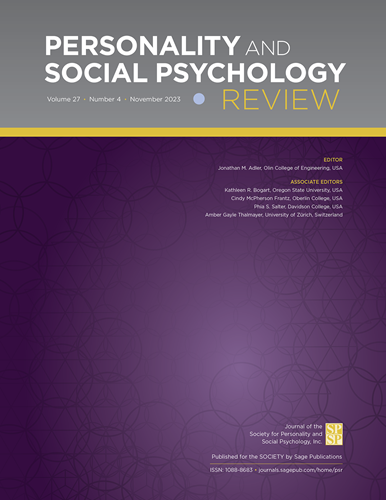外圆内方:儒家视角下的真实性表征框架。
IF 10.4
1区 心理学
Q1 PSYCHOLOGY, SOCIAL
引用次数: 0
摘要
摘要真实性是西方主流心理学研究方法中的一个重要概念,但从主流世界的视角对其研究较少。在本文中,我们借鉴了中国文化中外圆内方的理念来填补这一空白。在阐明这一本土概念的文化和心理意义之后,我们提出了一个完整的框架,该框架沿着两个连续的维度来表征真实的自我功能:外圆与外方,反映了寻求人际和谐、适度和灵活性的程度;内方与内圆,表明了伦理自我意识和道德坚持的程度。我们将阐述这一框架如何表征真实性的不同模式,并考察其在中国背景下的可变性,并讨论其对真实性研究中的中国心理学、主流西方心理学方法和全球(跨文化)心理学的影响。你有没有想过真实的自我在不同的文化中是如何表现的?在中国,一个被称为“外圆内方”的儒家哲学概念,融合了保持道德诚信和人际和谐的观点,以表达出真实自我功能的细微差别。想象一下,一个人既能熟练地应对各种社交场合(外圆),又能坚定地坚持自己的道德原则(内方)。这包含了有影响力的儒家叙事所传达的真实性的突出属性。我们的研究对这一概念进行了深入的文化和心理探索,并引入了一个框架来表征中国的真实性及其多样化的表达方式。这些分析加深了我们对人类多样性和共通性的认识,从而促进了更具包容性的全球心理学的发展。本文章由计算机程序翻译,如有差异,请以英文原文为准。
Outside Roundness and Inside Squareness: A Framework for Characterizing Authenticity Through the Lens of Confucianism.
Academic AbstractAuthenticity, a key concept in dominant Western psychological approaches, has been less studied from the Majority World perspectives. In this article, we draw upon the Chinese cultural ideal of Outside Roundness and Inside Squareness to fill this gap. After illuminating the cultural and psychological meanings of this indigenous concept, we propose an integrated framework that characterizes authentic self-functioning along two continuous dimensions: Outside Roundness versus Outside Squareness, reflecting the degree of seeking interpersonal harmony, moderation, and flexibility, and Inside Squareness versus Inside Roundness, indicating the degree of ethical self-consciousness and moral adherence. We illustrate how this framework can characterize different modes of authenticity and examine their variability in the Chinese context, and discuss its implications for Chinese psychology, dominant Western psychological approaches, and global (cross-cultural) psychology in authenticity research.Public AbstractHave you ever contemplated how the authentic self manifests within different cultures? In China, a Confucian philosophical concept, known as Outside Roundness and Inside Squareness, merges the perspectives of maintaining moral integrity and interpersonal harmony to articulate the nuances of authentic self-functioning. Imagine an individual who skillfully maneuvers through social situations (Outside Roundness) while steadfastly upholding his/her moral principles (Inside Squareness). This encapsulates the prominent attributes of authenticity as conveyed through the influential Confucian narratives. Our research offers an in-depth cultural and psychological exploration of this concept, and introduces a framework to characterize Chinese authenticity and its diverse expressions. These analyses deepen our appreciation for both the diverse and shared aspects of humanity, thereby contributing to the evolution of a more inclusive global psychology.
求助全文
通过发布文献求助,成功后即可免费获取论文全文。
去求助
来源期刊

Personality and Social Psychology Review
PSYCHOLOGY, SOCIAL-
CiteScore
19.00
自引率
1.90%
发文量
20
期刊介绍:
Title: Personality and Social Psychology Review (PSPR)
Journal Overview:
Official journal of SPSP, the Society for Personality and Social Psychology, Inc.
Premiere outlet for original theoretical papers and conceptual review articles in all areas of personality and social psychology
Features stimulating conceptual pieces identifying new research directions and comprehensive review papers providing integrative frameworks for existing theory and research programs
Topics Covered:
Attitudes and Social Cognition: Examines the inner workings of the human mind in understanding, evaluating, and responding to the social environment
Interpersonal and Group Processes: Explores patterns of interaction and interdependence characterizing everyday human functioning
Intergroup Relations: Investigates determinants of prejudice, conflict, cooperation, and harmonious relationships between social groups
Personality and Individual Differences: Focuses on causes, assessment, structures, and processes giving rise to human variation
Biological and Cultural Influences: Studies the biological and cultural mediation of social psychological and personality processes
 求助内容:
求助内容: 应助结果提醒方式:
应助结果提醒方式:


